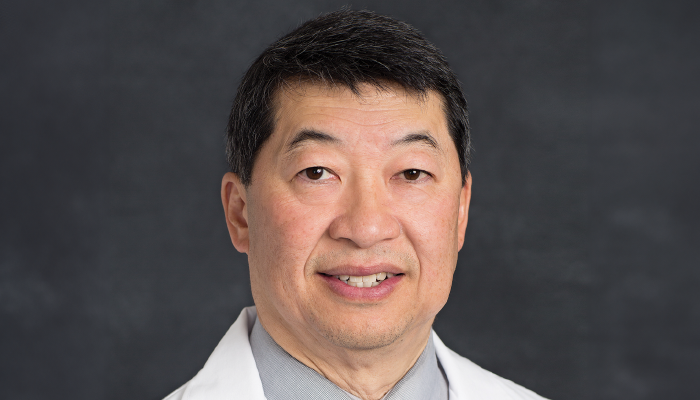
David F. Chang
What is your involvement in working towards sustainability in ophthalmology?
My initial interest was driven by two strong influences. I’ve collaborated with cataract surgeons at Aravind for more than 20 years on multiple clinical studies. They have continually analyzed what supplies can safely be reused, and this has produced a large amount of data that can guide all of us to safely reduce waste. I’ve also co-chaired the ASCRS- AAO-OOSS multi-society Ophthalmic Instrument Cleaning and Sterilization (OICS) Task Force to defend common, established surgical practices against regulatory overreach in the US. Through this role, I better understand the forces that unnecessarily mandate single use of most products in our ORs.
What are the most urgent sustainability priorities and challenges in the field?
On the EyeSustain website, we list seven things that ophthalmic surgeons can do to reduce waste. Everyone should urge their surgical facility to take our online pledge to consider improvements, such as using multidose topical drugs on multiple patients, monitoring custom packs to eliminate infrequently used components, and using alcohol-based hand scrub between cases. These measures reduce costs and waste.
Second, industry must prioritize and provide us with more multi-use products, devices, and drugs. Our surveys of European and North American ophthalmologists show that 97 percent want manufacturers to do this (1, 2). Finally, regulatory bodies should not mandate single use of every ophthalmic product by default, when there is no clear evidence of danger with re-use. Most surgeons in the two surveys strongly agree with this proposal and want more discretion to decide what can be reused and under what circumstances. Cataract surgery is a clean procedure and the risk of microbial cross contamination is remote with common sense practices.
What has advanced in terms of how practitioners and the industry have addressed sustainability in the last decade?
Increasingly frequent weather extremes make climate change harder to ignore. When you realize how much waste and CO2 emissions come from the health care sector, and specifically the manufacture, use, and disposal of supplies, it becomes imperative that every stakeholder must improve. The American agency that oversees the FDA and Medicare has called for this, and manufacturers are committing to advancing the sustainability of their products.
Sustainability is a ubiquitous subject at events and meetings. But how genuinely is ophthalmology invested in it?
The World Health Organization (WHO) has declared that the climate crisis poses the single greatest threat to global public health. Regardless of our subspecialty, we are all physicians, and this should alarm and motivate us all.
This is the goal of EyeSustain – to provide a global coalition and network through which we can collaborate to make ophthalmology more environmentally and financially sustainable. Unsustainable resource wastage creates supply shortages and imperils public health through global CO2 emissions. Mitigating unnecessary waste is win-win for physicians, facilities, and the environment, thus ultimately benefiting global public health.
How can ophthalmology stakeholders work together to reach goals in sustainability?
This effort should be led by our medical societies, who represent ophthalmologists collectively, are not profit driven, and advocate for public health, rather than for an individual patient. EyeSustain has enlisted more than 50 global ophthalmology societies in this united coalition that is co-sponsored by ASCRS, ESCRS, and AAO. Meaningful progress requires the partnership of industry, which must design and then offer us more reusable supplies and devices. By charging more for multiuse options, they can maintain comparable revenue, without requiring us to unnecessarily dispose of every product after each use. Regulatory agencies should encourage and facilitate approval of these more sustainable options, including more environmentally friendly packaging. Excessively stringent regulatory barriers will impede progress and disincentivize manufacturers from doing the “right thing.”
David F. Chang is Clinical Professor at the University of California, San Francisco (UCSF) and in private practice in Los Altos, California, USA. He has no relevant financial interest to declare.
References
- DF Chang, CL Thiel, “Survey of cataract surgeons’ and nurses’ attitudes toward operating room waste,” Special Report, J Cataract Refract Surg, 46, 933 (2020). PMID: 32773547.
- DF Chang et al., “Survey of ESCRS members’ attitudes toward operating room waste,” J Cataract Refract Surg, 49, 341 (2023). PMID: 36975010.
